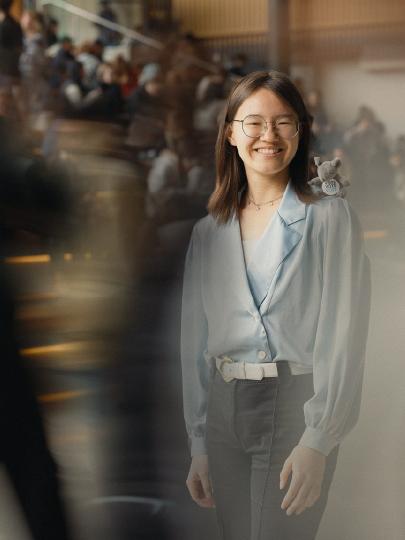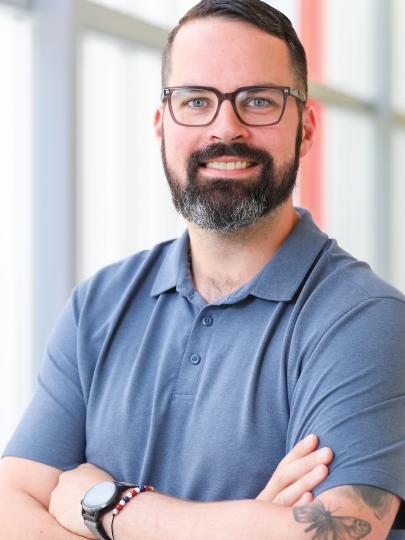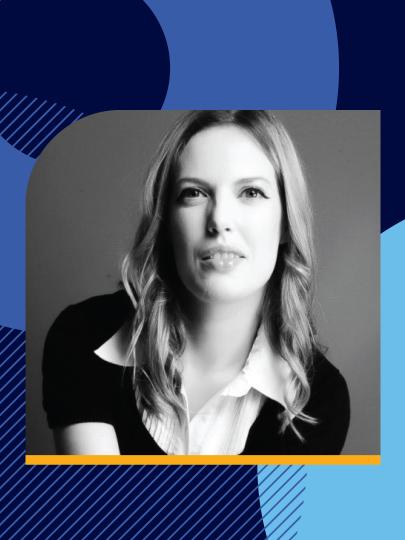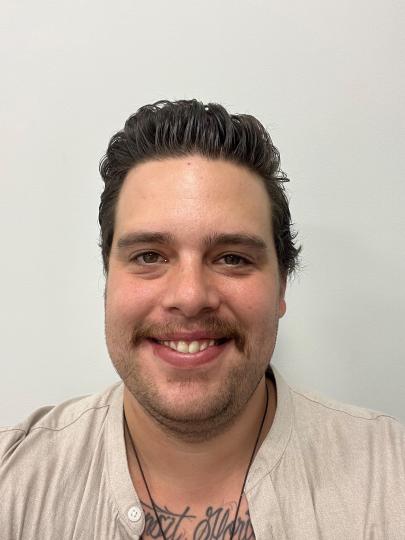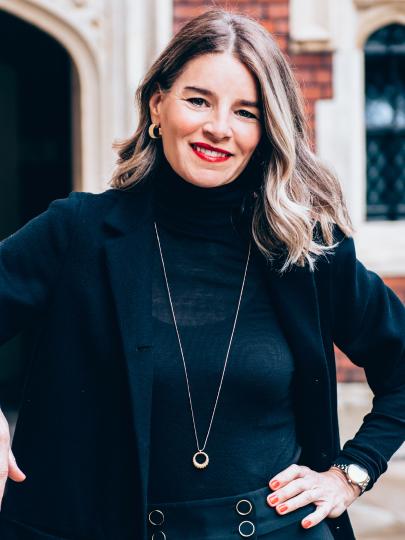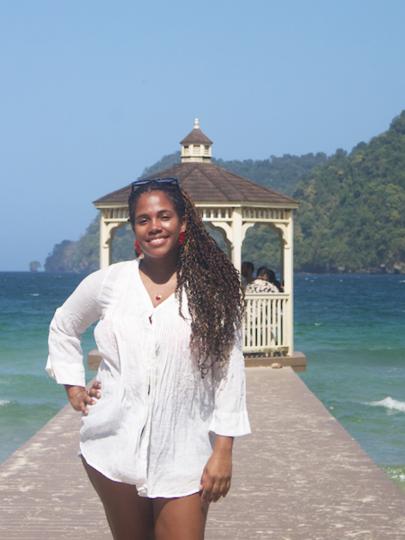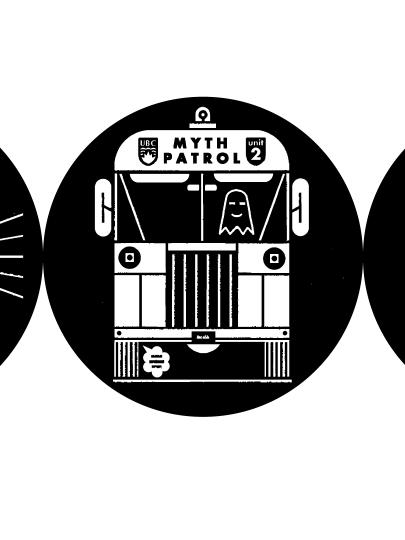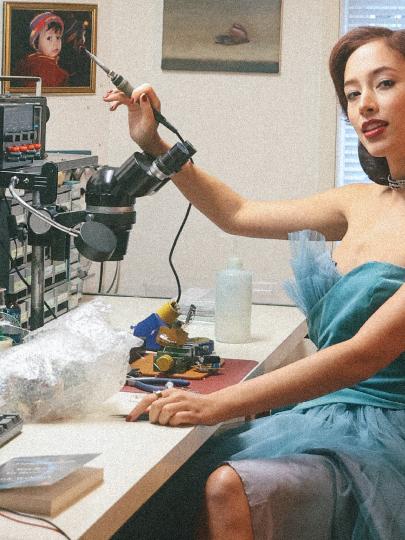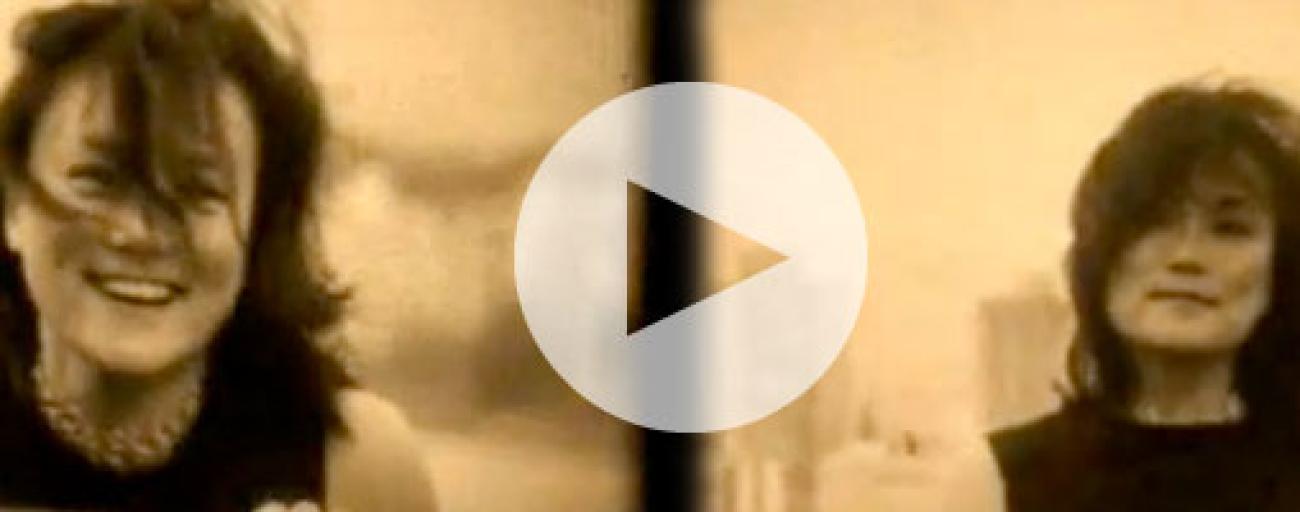Proud to Be Punk
Guided by a punk rock ethos and a strong sense of the absurd, Mina Shum's independent films challenge societal norms and explore questions of personal identity
It took three attempts for Mina Shum to get into UBC’s Film Production program. Her first application was in the style of a ransom-note, with letters cut out of newspapers and fixed onto a sheet of paper to read: LET ME INTO YOUR FILM PROGRAM. "I thought I was being creative," she laughs. "They thought I was dangerous."
Her unorthodox approach was inspired partly by the punk philosophy that guided her into adulthood and partly by playwright Harold Pinter. She was studying for a UBC degree in theatre, at the time, and exploring concepts such as Pinter’s theatre of the absurd, an avant-garde experiment drawing from silent film, comedy and verbal nonsense that attempts to shock the audience into rethinking societal paradigms.
She was also playing in an alt-rock punk band called Playdoh Republic – a twist on Plato's Socratic dialogue, which questions the existence of universals and explores ideas of justice and order. The name of the band says a lot about Shum's sense of humour, as well as her approach to politics; punk is not just a genre of music, it's also an ideology characterized by rebellion against accepted norms. Shum is equal parts Pinter and Punk – an independently-minded maker of movies who relishes the unusual, questions authority, and likes to shock her audience.
“one of the best comedic filmmakers in contemporary, independent Canadian cinema.”
After two more applications, plus volunteer work on student films, Shum was accepted into the film program at UBC. She graduated in 1990 and has since become known, according to the Canadian Film Encyclopedia, as “one of the best comedic filmmakers in contemporary, independent Canadian cinema.” She has directed three features and many short films, winning national and international recognition. Accolades include Best First Feature at the Berlin Film Festival, the Audience Award at Torino, and two Genies.
Shum’s experience in theatre was foundational to her career as a writer and director and she points to the late Dr. Peter Loeffler's Theatre 120 course at UBC as an early inspiration that has since informed much of her work. As the final project for the course, students were instructed to write an analytical essay, but Shum asked if she could stage a play instead. Loeffler agreed.
She chose Waiting for Lefty, a post-depression play framed around a cab drivers' union meeting which culminates with the question, “Well, what's the answer?” When the actors Shum had planted in the audience started to scream “Strike!” the remaining 200 students in the Freddy Wood Lecture Hall joined in with resounding enthusiasm. "It proved to me the power of theatre to incite emotion," says Shum, who recalls that Loeffler grabbed her at the end of class, picked her up and swung her around the room saying," A +... A+ ..." The experience taught Shum to push boundaries, a lesson she never left behind.
Everything Shum writes and directs pushes and pulls at everyday ideas and assumptions. She says she uses narrative to reveal things that people don't see, such as the effect family has on personal identity. They are your first mirror, according to Shum, who came to Canada with her family from Maoist China in 1966 when she was one year old. In her 1995 award-winning feature, Double Happiness, developed during her time as director-in-residence at the Canadian Film Centre, Shum cast Sandra Oh as Jade, a “cultural chameleon” living on the razor edge between family expectation and personal fulfillment. Double Happiness explores questions of multiculturalism and identity, two themes now synonymous with Shum's work and ones she explores through a very personal lens.
All of the filmmaker's work is self-referential. From her first short, Picture Perfect – which was not only based on her ex-boyfriend's pornography addiction but also starred him in the lead role – to the award-winning documentary Me, Mom and Mona about the women in her family, Shum has told stories from her own life. Growing up as a first generation Canadian, Shum existed in two worlds simultaneously and had to question everything. As a result, Shum's creative process also begins with a question. “There are times when you don't have a question and those are lonely times,” says Shum, “but I still go to my desk every day.”
Insecurity is at the heart of any identity question.
Currently, Shum is in the final stages of scripting a $10M irreverent romantic comedy that asks what happens when you suppress parts of yourself. Two of Me is about the new identity a mother must negotiate when she has a child. Jen, the lead character, feels she is not a good enough mother, a good enough wife, or a good enough musician. "If you hate part of yourself," says Shum, "it eventually manifests in one way or another." In Two of Me, Jen actually becomes two women – Jen number two being another version of herself who is ten years younger, still irreverent and still singing in a punk rock band. "We never think we are good enough," says Shum, whose own son is now six years old. "If a Mom pulls off a wicked birthday party," she confides by way of example, "I get a little insecure."
Insecurity is at the heart of any identity question. In one way or another, all of Shum's films ask: how do we have the courage to be who we are? Shum's most recent work, a short digital video called Hip Hop Mom, also tackles the question of motherhood and the battle for personal expression. In it, Shum maintains that Pinter-esque approach from the theatre of the absurd but trades punk rock for hip hop. Most pointedly, she reveals who we yearn to be beneath the costuming required by our everyday selves.
“I never had children of my own, but somehow I feel as though students are my children. To me they are like little trees: some will grow tall, some short, and some will grow sideways. But they are all little seedlings that I try to nourish.”
~Peter Loeffler, 2001.
